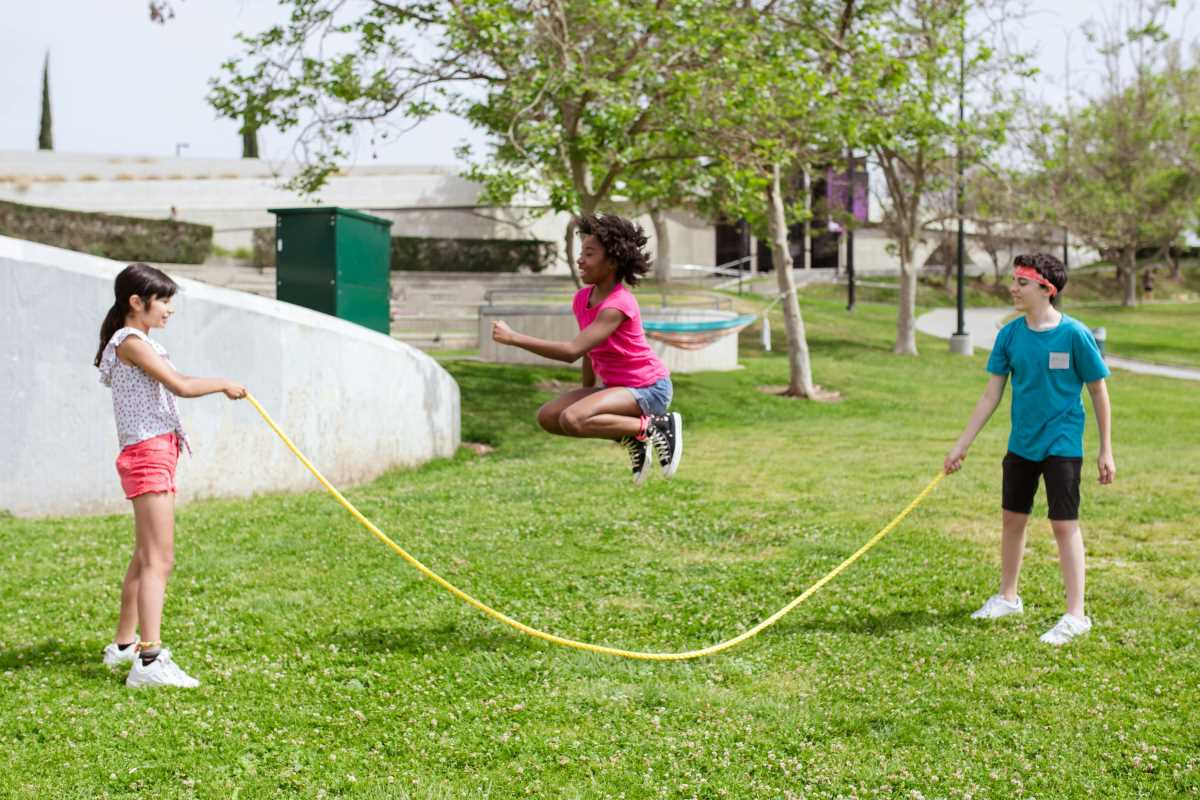Success is often tied to grades, test scores, and prestigious college admissions. While academic achievement is undoubtedly valuable, an increasing number of parents and educators recognize that there’s more to a child’s development than excelling in school alone. Emotional intelligence (EQ), defined as the ability to understand and manage one’s emotions while empathizing with others, is emerging as a crucial skill for young people. Nurturing EQ alongside academics prepares children to become confident, adaptable, and well-rounded individuals.
Understanding Emotional Intelligence
At its heart, emotional intelligence equips children with skills that aren’t measured by traditional report cards. It involves the ability to:
- Self-awareness Knowing and naming one’s emotions and understanding what triggers them.
- Self-regulation Managing emotions in healthy ways, such as calming oneself after stress or resisting impulses.
- Empathy Understanding and connecting with the feelings of others, which is foundational for kindness and compassion.
- Social skills Building effective communication strategies, resolving conflicts, and fostering meaningful relationships.
While intelligence quotient (IQ) measures cognitive abilities, EQ governs how well individuals can apply those abilities in social or emotional contexts. A child with high EQ tends to collaborate better, cope with challenges more effectively, and find creative solutions to problems.
Take, for instance, a group project at school. An academically gifted child may excel in contributing ideas, but without EQ, they might struggle to coordinate with others or resolve disagreements within the group. On the other hand, a child with strong EQ will likely mediate discussions, ensure every voice is heard, and work toward a peaceful resolution. Academics can teach a child what to think, but EQ teaches them how to interact with the world around them.
Why Emotional Intelligence Matters as Much as Academics
The benefits of emotional intelligence extend far beyond childhood. EQ shapes an individual’s ability to build meaningful connections, solve conflicts, and adapt to a fast-changing world. Here are several reasons why EQ is just as indispensable as academic prowess:
Stronger Relationships
Emotionally intelligent children are better communicators. They articulate their feelings and empathize with others, fostering deeper relationships. For instance, a child who notices a friend feeling upset may offer comfort or simply listen, which strengthens their bond.
Improved Coping Skills
Life is full of ups and downs, even for kids. Emotionally intelligent children develop robust coping mechanisms, keeping them calm and composed during challenges. For example, when facing rejection after trying out for a sports team, a child with high EQ might express their disappointment constructively and seek other opportunities rather than being paralyzed by self-doubt.
Greater Academic Focus
Though it might seem counterintuitive, regulating emotions actually supports academic achievement. Imagine a child struggling with a challenging math problem. Instead of getting frustrated and giving up, a child with high EQ might pause, identify their feelings of frustration, and seek help or take a break to clear their head.
Higher Resilience
The ability to pick oneself up after failure or setbacks is key to personal growth. Children with high EQ develop resilience, allowing them to maintain a positive attitude even after disappointing outcomes. For example, if a child forgets their lines during a school play, they are more likely to laugh it off and try again with encouragement, rather than shutting down.
Ultimately, EQ doesn’t just complement academic success but amplifies it. When children can effectively manage their emotions, they’re better equipped to handle schoolwork, exams, and social pressures.
Practical Ways Parents Can Foster Emotional Intelligence
Building EQ is far from a one-time activity. It’s an ongoing process that requires intention and consistency. Below are some practical, actionable strategies parents can adopt to nurture emotional intelligence in their children.
Encourage Open Dialogue
Children aren’t born knowing how to name or process emotions, but they can learn when given the opportunity. Foster open communication by creating a safe space for them to talk about their feelings. Instead of simply asking how their day was, dig deeper with questions like, “What was the best thing that happened to you today? What was the hardest part?” This allows children to reflect on their emotions and put them into words.
When a child loses a game, for instance, instead of saying, “Don’t be upset,” try acknowledging their feelings with, “You seem disappointed. Want to talk about it?” Labeling emotions helps children recognize them without shame, teaching them that all feelings are valid.
Model Healthy Emotional Behavior
Children are like sponges; they absorb what they observe. Parents who demonstrate emotional intelligence in their own lives set a powerful example. This might mean pausing before reacting angrily in stressful situations or admitting when you feel overwhelmed. For instance, saying, “I’m feeling a bit frustrated right now. I’m going to take a moment to calm down,” teaches children constructive ways to manage their emotions.
Equally important is showing children that it’s okay to make mistakes. If you lose your temper and later apologize, you model accountability and repair relationships, both of which are cornerstones of emotional intelligence.
Teach Problem-Solving and Conflict Resolution
Disagreements are inevitable, but they can also be opportunities for growth. Guide children through resolving small conflicts with their peers or siblings. If your child argues with a friend over a toy, encourage them to explain how they feel, listen to the other’s perspective, and brainstorm solutions like taking turns. This teaches communication skills, patience, and empathy.
You can also help children work through decisions. When they face a difficult choice, walk them through steps such as identifying the problem, considering options, and weighing the outcomes. These problem-solving exercises build confidence over time.
Celebrate Kindness and Empathy
Make a habit of recognizing and praising your child’s acts of kindness, whether it’s sharing their snack with a sibling or comforting a friend. Positive reinforcement lets children know that their empathetic behavior is valued. Families can also engage in activities that nurture empathy, like volunteering together at a local food bank or organizing a donation for those in need.
One powerful tool is storytelling. Reading books that depict characters experiencing different emotions can spark conversations about empathy. For example, asking questions like, “How do you think the character feels right now?” encourages children to put themselves in someone else’s shoes.
Give Children Choices and Control
Giving children age-appropriate autonomy nurtures their decision-making skills as well as their self-confidence. For example, you might allow a young child to choose between two outfits for the day or an older child to plan a fun family activity. When children feel their input holds value, they become more self-assured about expressing their preferences and handling the consequences of their choices.
At the same time, teach them to take responsibility for their actions. If a decision leads to an undesirable outcome, guide them in reflecting on what they might do differently next time rather than stepping in to fix the problem.
Balancing EQ and Academics for Lasting Success
Many parents wonder whether focusing on emotional intelligence comes at the expense of academics. The truth is, you don’t have to choose one over the other. The two complement each other beautifully. A balanced approach ensures children excel in school while growing into empathetic, resilient, and socially capable individuals.
Consider introducing mindfulness exercises before study sessions to help children manage stress and improve focus. Techniques like deep breathing can calm nerves before tests, and taking periodic breaks prevents burnout. Encouraging teamwork during group assignments also fosters both academic achievement and social skills simultaneously.
Additionally, schools are increasingly integrating social-emotional learning (SEL) into their curricula. These programs teach students practical skills like empathy, self-awareness, and responsible decision-making. Parents can amplify these lessons at home by reinforcing emotional learning in everyday situations.
For instance, when helping with homework, encourage a growth mindset by praising effort over results. If your child struggles with a science project, say, “I can see you worked really hard on this. What do you think you can try next?” This emphasizes perseverance while fostering emotional intelligence.
Taking the Next Steps
Developing emotional intelligence isn’t just a parenting strategy; it’s a life skill that pays dividends far into the future. Start small. Incorporate simple routines like evening check-ins to share highlights and low points from the day. Consider practicing mindfulness as a family or playing games that encourage teamwork and communication.
Collaborate with teachers and schools to advocate for SEL programs if they don’t already exist. When home and school contexts align in prioritizing EQ, children benefit tremendously. They learn to value not just academic success but also compassion, resilience, and collaboration.
Raising emotionally intelligent children is one of the most profound gifts you can offer as a parent. Combined with academic learning, this balanced approach paves the way for happy, capable individuals who thrive in both their personal and professional lives. Together, EQ and academics unlock the potential for lifelong success.







